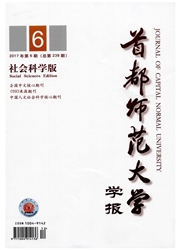

 中文摘要:
中文摘要:
以147名小学三至六年级儿童为被试,采用议价博弈实验范式考察当被信任者的人际关系属性分别为陌生人、外班同学、同班同学和好朋友时,被试做出信任和不信任选择的人数百分比是否存在差异。结果显示:(1)多数被试对陌生人、外班同学持不信任态度,而对好朋友持信任态度;(2)被信任者为同班同学的情况下,儿童在博弈任务中的选择表现出显著年级差异:随年龄增长信任者人数逐渐增多;其他人际属性下年级差异不显著;(3)博弈中信任水平存在性别差异,男生对外班同学表现出更多的不信任,女生对同班同学表现出更多信任。
 英文摘要:
英文摘要:
Based on a sample of 147 primary students from third-grade through sixth-grade, the present study aimed to explore whether trust level of participants was affected when interpersonal property of the trustee was different. The study collected pariticipants' responses to bargaining game by questionnare to measure their trust. Each participant was asked to decide how to distribute chocolates between he or she and a stranger/ a student from a different class/ a student from the same class/ close friend. According to participants' choice, participants would be coded to be trustful or distrustful. The results showed that: (1) more participants were not willing to trust a stranger, a student from a different class, but willing to trust their close friend; (2) the higher pariticipants' grade were, the more pariticipants which trustde a student from the same class were; (3) there was a significant difference in gender: boys more distrusted a student from a different class than girls, and girls more trusted a student from the same class than boys.
 同期刊论文项目
同期刊论文项目
 同项目期刊论文
同项目期刊论文
 期刊信息
期刊信息
